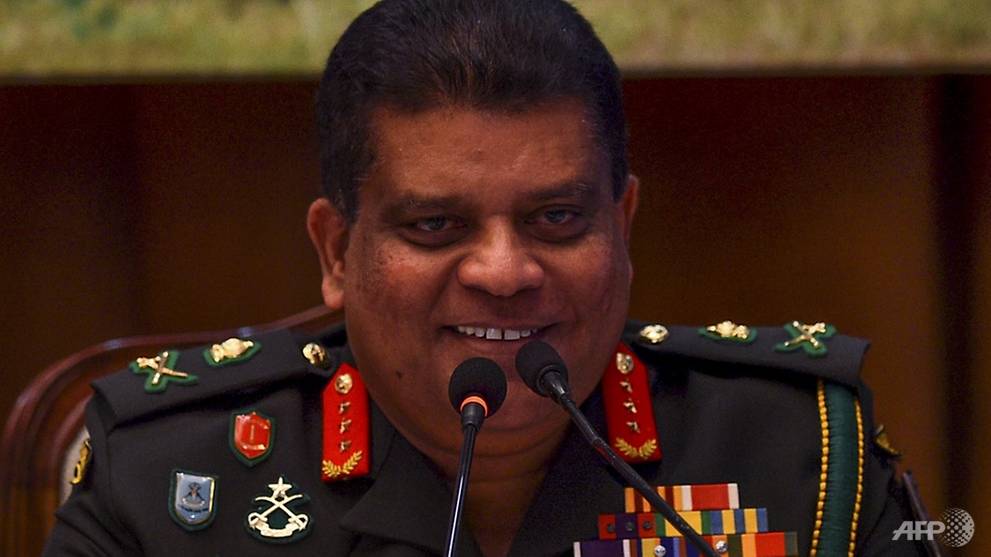
WASHINGTON: The United States said on Friday (Feb 14) it would refuse entry to Sri Lanka's army chief over what it called credible evidence of human rights violations in the 2009 finale to the civil war.
Lieutenant General Shavendra Silva, whose appointment last year drew widespread international criticism, will be ineligible to visit the United States, as will his immediate family, Secretary of State Mike Pompeo said.
Advertisement
Advertisement
"The allegations of gross human rights violations against Shavendra Silva, documented by the United Nations and other organisations, are serious and credible," Pompeo said in a statement.
"We urge the Sri Lankan government to promote human rights, hold accountable individuals responsible for war crimes and human rights violations, advance security sector reform, and uphold its other commitments to pursue justice and reconciliation," he said.
Silva was the commanding officer of a key army division in the final months of the military offensive against Tamil Tiger rebels in 2009.
Rights groups say some 40,000 ethnic Tamils were killed in mass atrocities as government forces seized Sri Lanka's predominantly Tamil north. A UN report said Silva played a major role in orchestrating the war crimes.
Advertisement
Advertisement
The Sri Lankan government said it took "strong objection" to the travel ban on Silva and asked the United States to reconsider.
It reiterated its stance that there were "no substantiated or proven allegations of human rights violations against him."
"It is disappointing that a foreign government should question the prerogative of the democratically elected president to call upon persons with proven expertise to hold key positions on national security related matters," the government said in a statement.
The 2009 offensive delivered a death blow to the Tamil Tigers, whose nearly four-decade campaign for a separate homeland had killed 100,000 people and was characterised by rebel suicide attacks.
MESSAGE TO OTHER POST-WAR STATES
Kate Cronin-Furman, an expert on mass atrocities and human rights at University College London (UCL), said a visa ban would be a "pretty small disincentive" if seeking to stop ongoing atrocities.
"But if instead we think about this as an effort to get states like Sri Lanka to stop appointing war criminals to leadership positions, then the prospects look much rosier," she said.
Other nations' post-war governments, seeing the visa ban on Silva, could conclude it is easiest "to just not promote a war criminal in the first place."
The Sri Lankan government "will likely get some domestic political mileage out of Shavendra Silva's visa ban. But there's no doubt that it's embarrassing to have your army commander barred from entering the US,&Read More – Source
[contf]
[contfnew]
channel news asia
[contfnewc]
[contfnewc]







